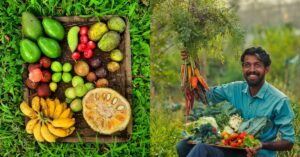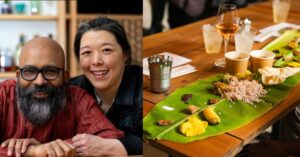Kerala Photographer Raises 80 Types of Veggies, Fishes & Beehives in His Backyard
Joshy Mathew grows 80 varieties of organic fruits, vegetables and medicinal plants, does pond fishing and beekeeping - all on a meagre 25 cents of land
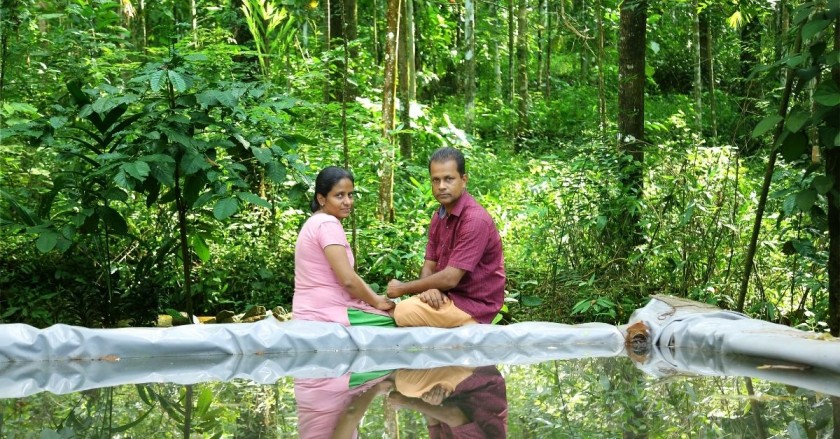
Joshy Mathew’s eco-friendly house is tucked away amidst the lush green trees near the Cherupuzha-Thirumeni road in Kerala’s Kokkadav village. The 50-year-old’s striking house with organic mango and coconut trees is made from red laterite stone. It keeps the interiors cooler than the outside temperature.
The house was only the beginning of a sustainable life that would eventually culminate in the family growing their organic food and practising fishing and beekeeping on just 25 cents (0.25 acre) of land.
Joshy, a photographer by profession and an environmentalist by heart, is widely known in the village for his eco-friendly practices that have made his family completely self-sufficient. Except for rice and wheat, all their food including fish, fruits, vegetables and chicken is grown in the house.
Unable to view the above button? Click here
It has been nearly five years since Joshy and his wife Julie have been to the market to purchase any food. They are happily unaware of the current vegetable prices.
“All our food needs are met by our home-grown plants and trees. We get our fish from the two artificial ponds, and we also practice poultry farming. We have a cow that gives milk and manure,” Joshy tells The Better India.
It comes as a surprise to many when Joshy reveals the land area vis-a-vis the 80 types of food.
In fact, Joshy was the first one to dismiss his friend’s suggestion of farming in his small courtyard a few years ago. Like everyone, he was also convinced that farming required a proper land; it was time-consuming and labour intensive.
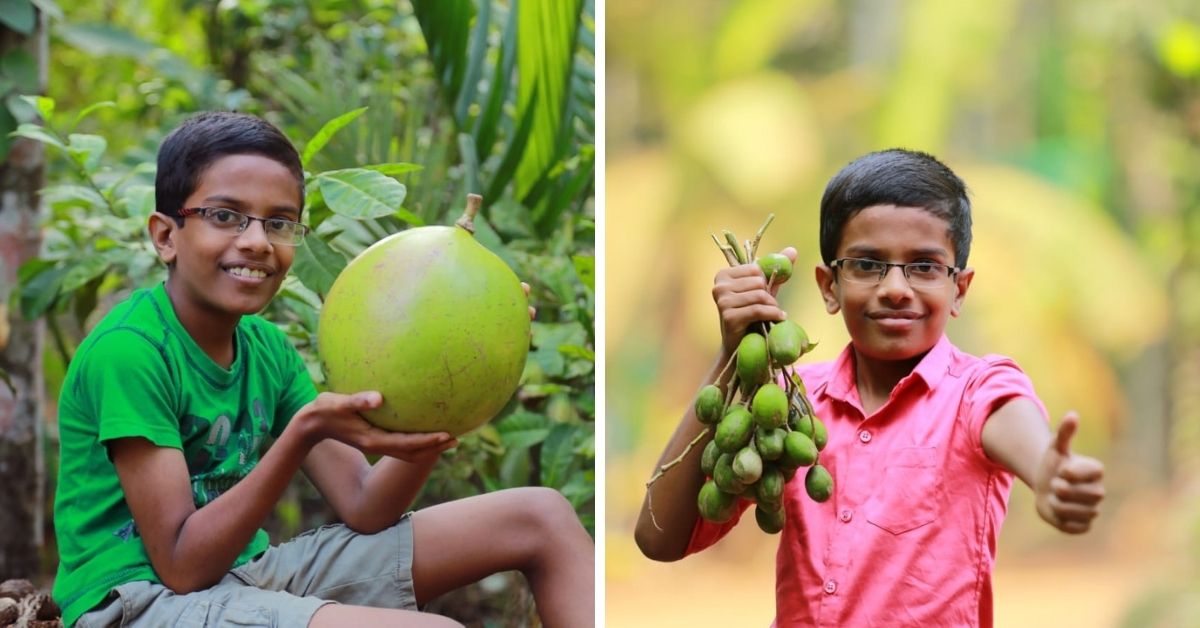
So what changed and how did he overcome all the limitations?
“My friend, Joychan Puttenpura, showed me successful examples of people using very little space to grow food. He even made me join a Facebook comprising farmers and gardening experts from whom I learnt a lot. It started with 2-3 plants, and soon I was addicted to eating natural food. I detested the taste of vegetables sold in the market and decided to grow more,” he says.
The Organic Beginning
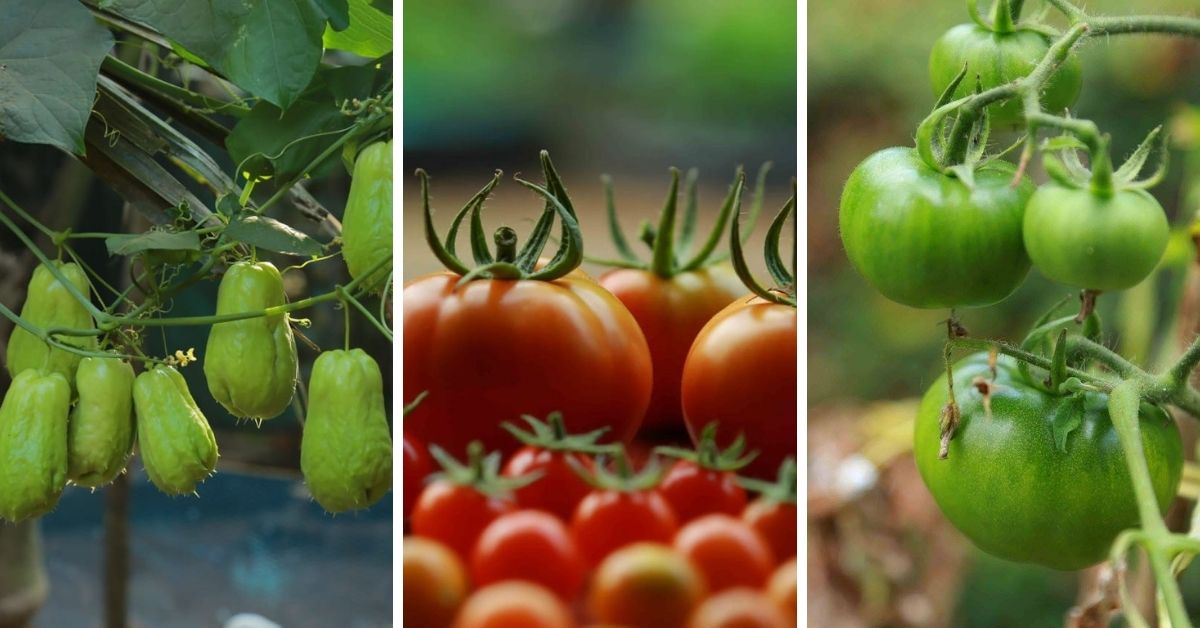
Joshy grew up in a farming family but seeing his parents struggle financially, he finished his schooling and took up a job with the Mangalore Refinery and Petrochemicals Limited in Mangaluru in the early 1990s.
However, he returned to his hometown In 1996 to look after his ill parents and started his career as a wedding photographer, “It (photography) was a lucrative career, and with the help of my friends, I learnt photography. However, I couldn’t stay away from my agrarian roots, so I ventured into farming as a hobby in 2015,” says Joshua.
Meanwhile, his wife, Julie, is currently completing her Masters in Social Work and their two children are in school.
Julie found the idea of growing everything at home appealing and the duo started their experiments. They approached local farmers for procuring seeds, purchased a cow and recycled discarded tires into planters.

First, they used the space in between the trees to plant organic vegetables and later moved the cultivation on their terrace to accommodate beehive and ponds.
A Bouquet of Indigenous Plants
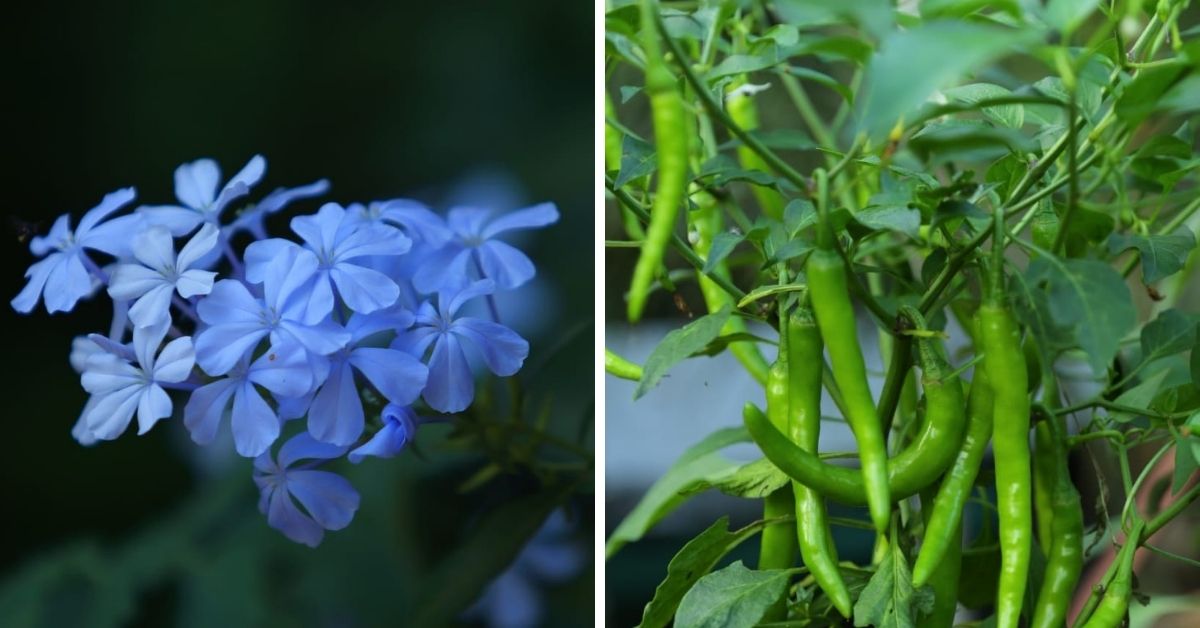
Joshy has consciously stayed away from using any complicated farming methods like permaculture, intercropping or multi-layering. He conventionally sows seeds and harvests. However, his watering method is the hero here.
Joshy uses wick irrigation, a method that uses ropes/wicks to supply water directly to the roots below the soil surface that minimises evaporation.
Explaining the process, Joshy says, “In wick irrigation or as known as Thiri Nana in Malayalam, we fill a bucket with water and cover it with a tray. A hole is drilled on the tray to incorporate one end of the rope. The other end goes through the grow bags that are placed on top of the tray. In simple terms, this method is a self-watering one and twice in a week, we refill the bucket.”
The advantage of wick irrigation is that it saves time and water by giving water directly to the roots.
To keep the pests at bay, Joshy uses organic manure prepared from cow dung, fallen leaves and kitchen waste, “Sometimes we also use neem paste to save the plants from insects. Additionally, the medicinal plants also act as pest-repellents,” says Julie.
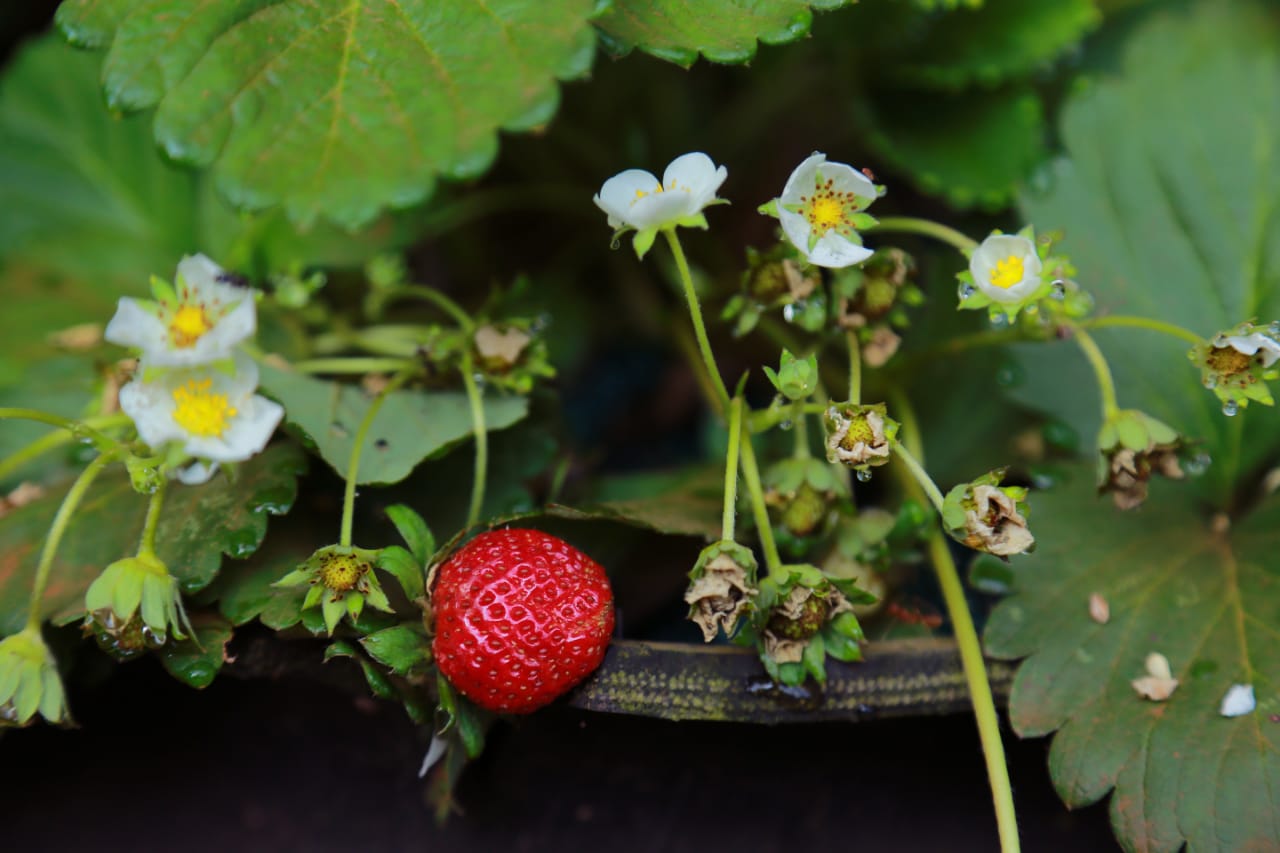
The family grows 30 medicinal plants including Somlata (Sarcostemma acidum) and Neelakoduveli (blue leadwood). Vegetables are grown as per the seasons which include everything from aerial potatoes, spinach, tomatoes, beetroot, chillies, cabbage to calabash (long melon). Fruits include organic mangoes, lemon wine, peanut butter, strawberry, mangoes, oranges, dragon fruit and so on. Spices like pepper, nutmeg and cardamom can also be found in the courtyard.
Joshy has two artificial ponds (1 cent and 0.5 cents) comprising a total of 800 fishes like giant gourami, red tilapia and Assam vaala in his backyard. These fishes feed on algae.
While fishes in the ponds are primarily for self-consumption, the lockdown allowed him to commercialise the business as the markets were shut. He sold close to 3000 fingerlings at Rs 10 per piece.
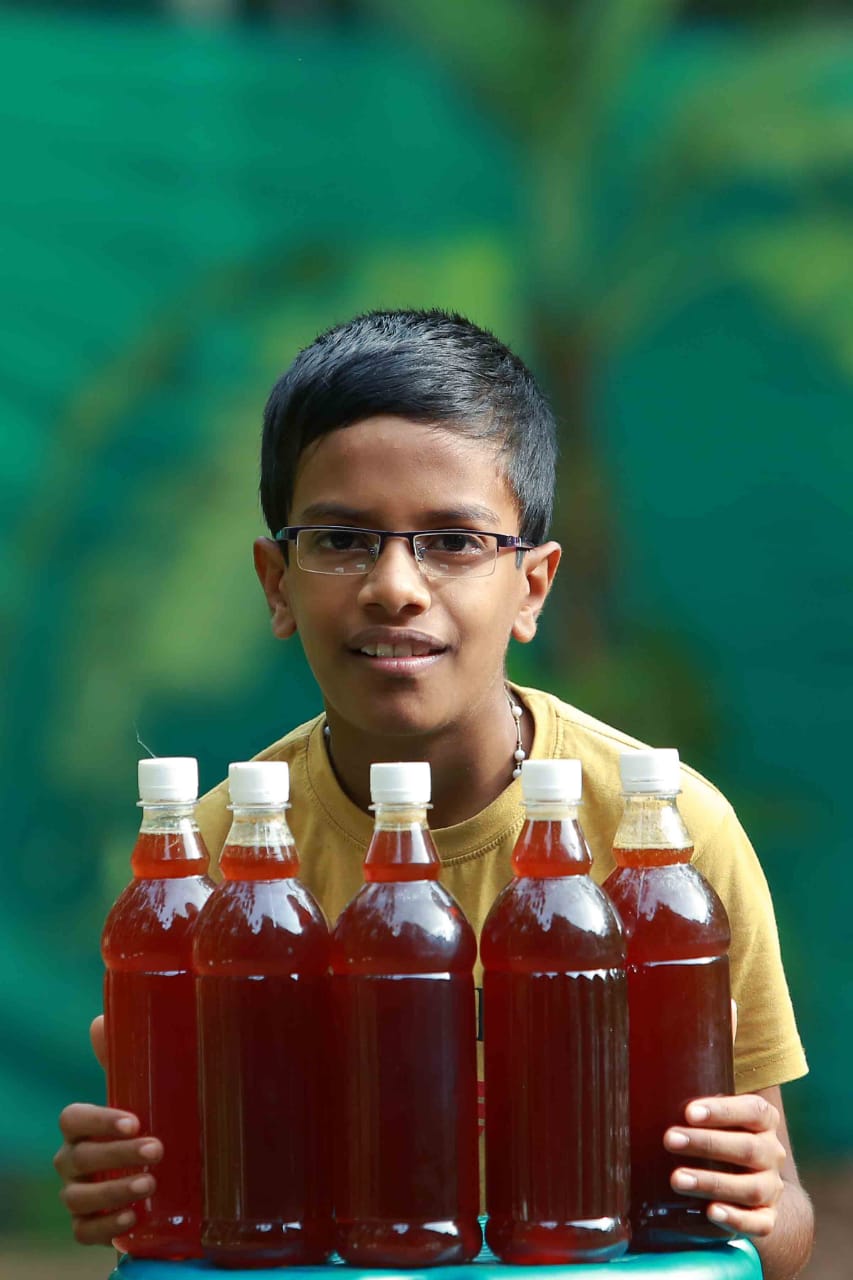
60 colonies of beehives are another beautiful attraction of the house. They have stingless bees that yield 20 kilos of honey annually.
“Last year, each kilo fetched us Rs 2,000, and we also sold 20 bee colonies in the village. We generated a total profit of Rs 80,000 from our beehive business,” says Julie.
The commercial aspect is relatively new for the family as so far they have been selling only to their friends and family. However, lockdown is turning out to be a good opportunity, especially now when the weddings are limited due to the pandemic.
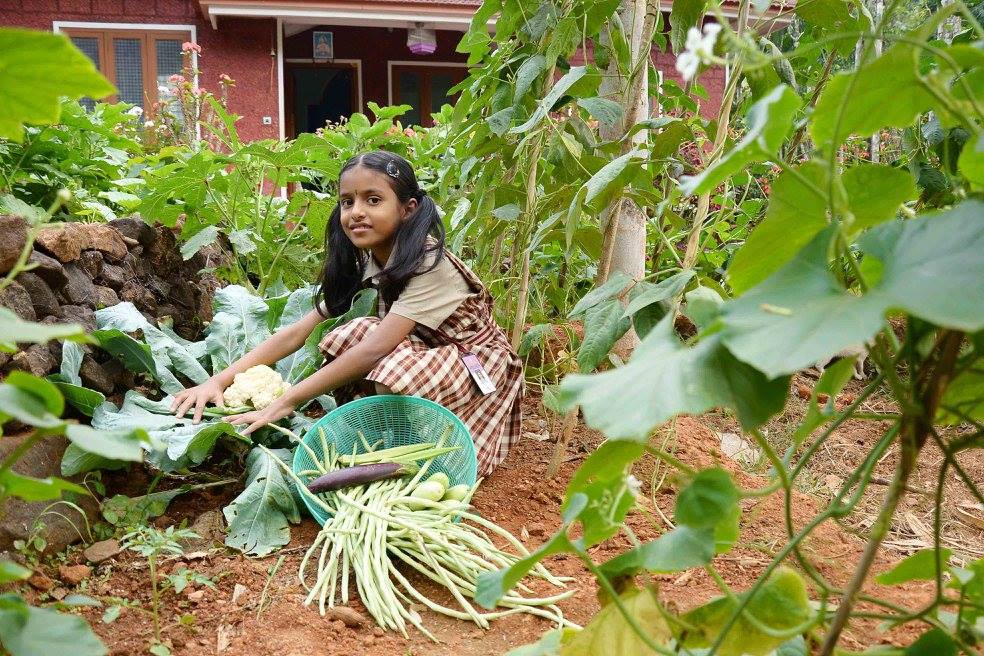
“This pandemic proved that if your professional career might be at stake, growing your food can be a huge relief. At least your family will have food to eat at the end of the day. Plus, if the quantity is decent, you can even generate revenue,” adds. Joshy.
(Edited by Vinayak Hegde)
This story made me
- 97
- 121
- 89
- 167
Tell Us More
We bring stories straight from the heart of India, to inspire millions and create a wave of impact. Our positive movement is growing bigger everyday, and we would love for you to join it.
Please contribute whatever you can, every little penny helps our team in bringing you more stories that support dreams and spread hope.






